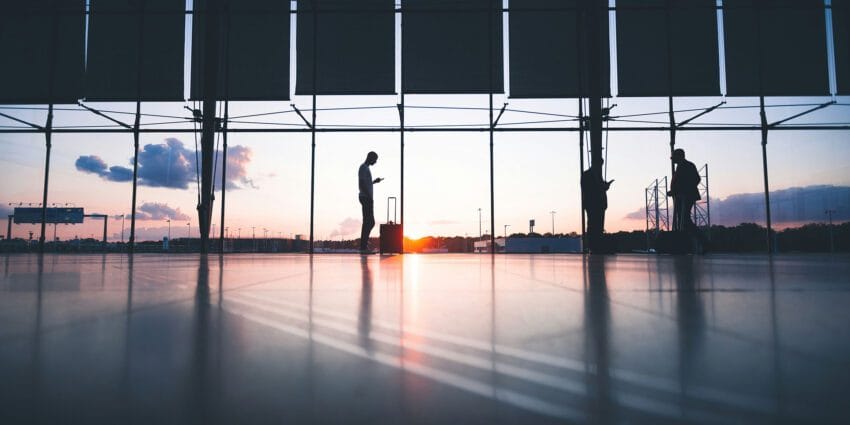
phone searches at the us border are at record levels – and your rights are unclear: Phone searches at the us border are — The surge in phone searches conducted by US Customs and Border Protection (CBP) has raised significant concerns about privacy rights for travelers entering the United States..
Phone Searches At The Us Border Are
The surge in phone searches conducted by US Customs and Border Protection (CBP) has raised significant concerns about privacy rights for travelers entering the United States.
Record Levels of Phone Searches
In the last quarter, the US Customs and Border Protection (CBP) reported an unprecedented rise in the number of phone searches. This increase comes at a time when border security measures are under heightened scrutiny, reflecting broader national security concerns and evolving technologies. The CBP has implemented these searches as part of its mandate to enforce immigration laws and protect the nation from potential threats.
Statistics and Trends
According to the latest data, the number of phone searches at US borders has reached record levels. This trend indicates a growing reliance on digital surveillance as a tool for border security. While specific numbers have not been disclosed, the increase is notable compared to previous years. The CBP’s ability to search electronic devices, including smartphones and laptops, has become a focal point of discussion regarding civil liberties and individual rights.
The Legal Landscape
The legal framework surrounding phone searches at the border is complex and often ambiguous, particularly concerning US citizens. Under the Fourth Amendment, individuals are protected against unreasonable searches and seizures. However, the legal interpretation of this protection at border crossings has evolved.
Current Legal Interpretations
Courts have generally allowed border agents to conduct searches of electronic devices without a warrant. This legal stance is based on the premise that the border is a unique environment where the government has broad authority to protect national security. However, the lack of clear guidelines raises questions about the extent of these powers, particularly for US citizens. The legal ambiguity surrounding these searches has created a challenging landscape for travelers.
Implications for US Citizens
For US citizens, the implications of these searches can be significant. Travelers may find their personal data exposed to scrutiny without clear legal protections. This situation is particularly concerning given the sensitive nature of information stored on smartphones, including personal communications, financial records, and private photos. The uncertainty regarding the rights of citizens during these searches can lead to confusion and anxiety for those crossing the border.
Privacy Protection Measures
Despite the legal ambiguities, there are steps travelers can take to safeguard their privacy when crossing the border. These measures can help mitigate the risks associated with phone searches and protect personal information.
Pre-Travel Preparations
- Limit Data Storage: Travelers are advised to minimize the amount of sensitive information stored on their devices before traveling. This can include deleting unnecessary apps, files, and personal data.
- Use Temporary Devices: Some individuals opt to use temporary devices that contain minimal personal data for travel. This approach can reduce the risk of exposing sensitive information during a search.
- Enable Encryption: Utilizing encryption tools can provide an additional layer of security for personal data. Encrypted files are more challenging for border agents to access without the appropriate credentials.
During the Search
If a traveler is subjected to a phone search, there are several actions they can take to protect their rights:
- Know Your Rights: Familiarizing oneself with legal rights at the border can empower travelers to respond appropriately during a search.
- Request a Supervisor: If uncomfortable with the search, individuals can request to speak with a supervisor. This can sometimes lead to a more thorough explanation of the search process.
- Document the Encounter: Keeping a record of the search, including the officers involved and any information provided, can be beneficial for future reference.
Impact on Travelers and Stakeholders
The increase in phone searches at US borders has far-reaching implications for various stakeholders, including travelers, civil rights organizations, and legal experts. For travelers, the anxiety surrounding potential searches can deter international travel or lead to self-censorship regarding the information they carry.
Civil Rights Concerns
Civil rights organizations have raised alarms about the implications of these searches for personal privacy and civil liberties. The American Civil Liberties Union (ACLU) and other advocacy groups have expressed concerns over the lack of oversight and accountability in the CBP’s search practices. They argue that these searches can disproportionately affect marginalized communities and undermine the principles of privacy and personal freedom.
Legal Challenges
As the number of phone searches continues to rise, legal challenges may emerge that seek to clarify the rights of travelers at the border. Legal experts advocate for clearer guidelines that protect individual rights while balancing the need for national security. The outcome of these challenges could set important precedents for future border searches and the extent of governmental authority in the digital age.
Conclusion
The rising trend of phone searches at US borders highlights a critical intersection of technology, privacy rights, and national security. As travelers navigate this evolving landscape, understanding their rights and taking proactive measures to protect their personal information is essential. The ongoing legal debates and potential challenges may ultimately shape the future of border security practices and the rights of individuals crossing into the United States.
Source: Original reporting
Further reading: related insights.
Was this helpful?
Last Modified: August 27, 2025 at 1:51 am
4 views














